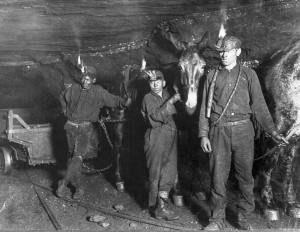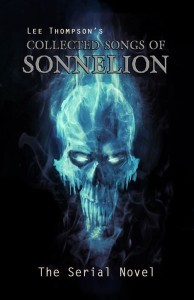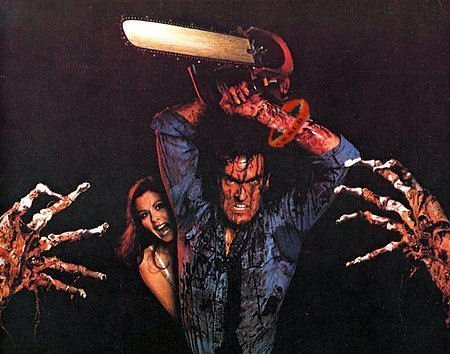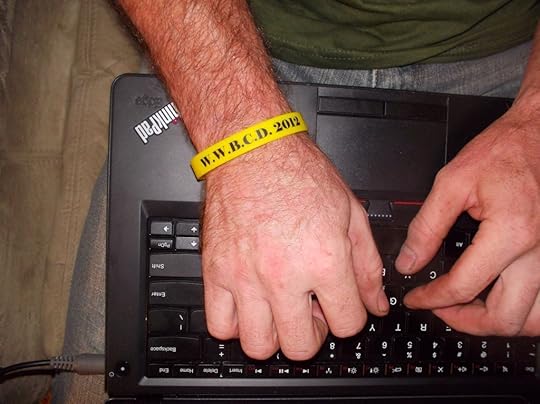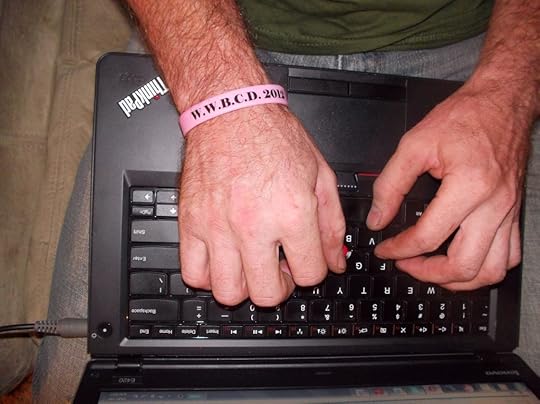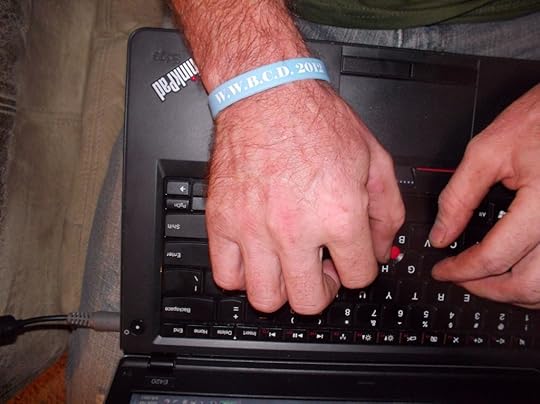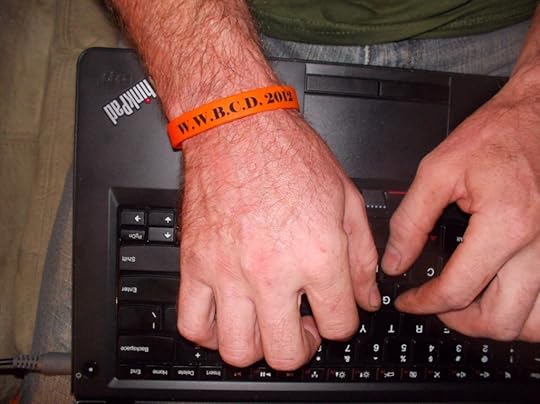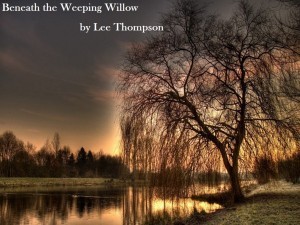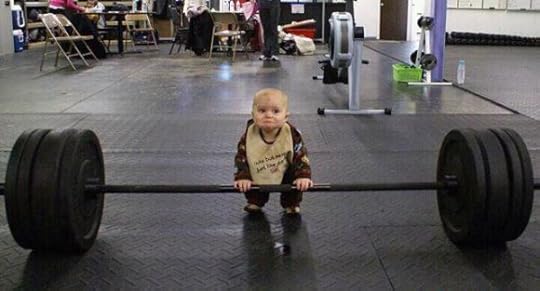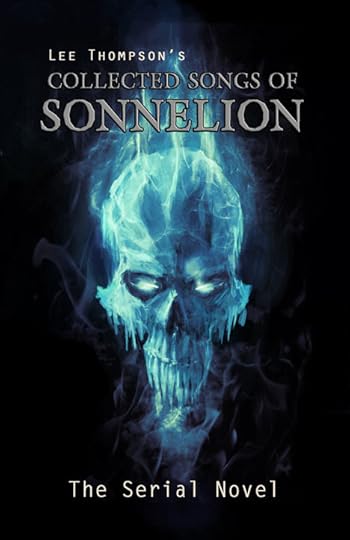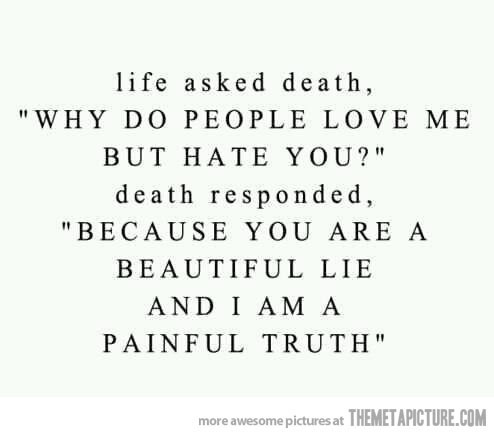Lee Thompson's Blog, page 16
August 13, 2012
Tuesday’s Training: Mining real life
I’m reading an awesome book called Becoming Faulkner: The art and life of William Faulkner by Philip Weinstein. In it, as in many looks into the lives of creative geniuses, I see an unbreakable bond between a author’s personal life and art. Mining real life seems to be a common practice of established writers. And is there any doubt why? What we know intimately, what we have strong feelings for or against, not only shapes our views of ourselves and the world we live in, but also shapes what we hope to become and how we hope others will see us in retrospect and as yet unseen days. Our reality can differ from other realities. Our memories can differ from the other’s memories though we saw the same thing. I believe that the lifeblood of story is inescapably tied to our life experiences crossbreeding with our imagination.
By the time we’re adults we’ve dealt with, savored, and struggled against every emotion. We build up memories both factual and fictitious. We embellish the most outrageous moments we’ve seen or heard about, and we relish the mundane, when things were simple play, a gearing up for adult life and our place in the world. We store away so much that sometimes we forget, and it takes a trigger, a certain smell, a certain turn of phrase, a certain hue of the evening sky to recall with incredible clarity a moment once lived and now lost to us. Until those moments–people, emotions and situations are dredged from our psyches, of whole cloth, inseparable from who we are or who we were–they’re useless.
What can we mine from real life for our fiction? The easy part is knowing our own motives if we’re honest with ourselves. What’s not easy, at least at first, is creating characters who are strange to us, who act different from us, who believe things that we deem crazy, childish, or wrong. But that is where we can grow so much as writers. To grow beyond our limited, sole selves. To turn away from the comfortable and familiar and dip our toes in the water of someone else’s experience. To reach out and try to understand the reasonings of someone else, especially someone vastly different, brings with it a gift we can receive no other way. What gift? The gift of insight, of exploration, of freedom and understanding and compassion.
What can’t we mine from real life to use in our fiction? I don’t see any restrictions. I think it’s all fair game. Some of it will hurt to dig up though. Sometimes we enjoy denial about our own actions, justifying them, or pretending they don’t exist. Sometimes we do the same for those we care about. But man, do the truths as we know them, and the truths others know for themselves, enrich our work.
Mining real life is also about connecting again with ourselves. In such a mad world, possessed and obsessed with getting ahead or being noticed, we lose something of ourselves in the simple striving to keep up with the rat race. Mining real life makes us be still and listen, to analyze and feel, to be a conduit for what has happened and to bring that thing, be it an emotion, an image accompanying it, whatever, to life.
How can you put this into practice? Let’s use a simple exercise.
Daydream on your past. As you remember, make notes of how each thing below made you feel and why it made you feel that way.
List one highlight from your childhood that you found touching.
List one downbeat from your childhood that you found horrifying.
List one highlight from young adulthood that you found exciting.
List one downbeat from young adulthood that you found confusing.
List one highlight from adulthood that you found extremely satisfying.
List one downbeat from adulthood that you found depressing.
The beauty of mining from real life is that the textures we can steal from it to apply to our current work is limitless. But be warned, like real mining, it takes an incredible amount of work and it can be a dirty job. But the fortune it provides once exhumed and refined is well worth it.
Shameless plug: We’re nearing the final chapters of my free serial novel The Collected Songs of Sonnelion, which you can read on Darkfuse or Issuu. You’ll want to catch up before time runs out and it’s taken off the web!
August 9, 2012
Chapter 25 The Collected Songs of Sonnelion
Today the 25th chapter of my free serial novel The Collected Songs of Sonnelion goes live on Darkfuse and Issuu. I’m looking forward to the next few weeks as the novel is wrapped up and feedback on it as a whole pours in. It’s such a big part of Red Piccirilli’s story in the Division Mythos. I’m very proud of it and feel as if I’ve taken some challenges head-on and overcame them. There are still three chapters to go after this and then it’ll be up for a few weeks before it’s taken off the internet so if you’re interested in catching up I’d suggest you start now. Thanks to everybody who has been following along!
In this Division Mythos novel, which is being serialized on Darkfuse’s website, Red Piccirilli has known madness and magic. They’re in his blood and bound to his soul as much as love and loss are. But when his family moves to the town of Division, Pennsylvania, his father grows distant, his mother troubled, and a murderer roams the countryside.
He searches for meaning and truth while battling his own darkness and rage and despair, but corpses whisper answers the dead only share with one another.
August 8, 2012
What Would Bruce Campbell Do?
Complete and utter badass Bruce Campbell would do whatever it takes.
And now you can too. Even better than the X-ray glasses in the backs of old comic books, the WWBCD bracelet can make you an animal fit for survival.* You should snag one for yourself, for your best buddy, for your lady. Hell, tell them to get one for their friends, then tell them to go watch Evil Dead, to watch Army of Darkness, to visit Bruce Campbell’s website, to check out Burn Notice. Tell them whatever you want. You can do it with a WWBCD bracelet. Then go spread the word on Twitter, Facebook, and your favorite forum. You know you want to be a badass like BC.
*with the help of training and the right attitude.
Disclaimer on the photo: If you’re stupid enough to believe he’s really wearing that bracelet you need more common sense. But maybe he’ll be wearing one soon and I’ll be the fool. Either way, you can show everybody who your hero is with one of these What Would Bruce Campbell Do? bracelets. Though being it’s just a series of letters you can make it mean whatever you want…. like: “What Would Bill Clinton Do?” or “What Would Breast Cancer Do?” or “Why Won’t Batman Come Drink?” or “Without Women Boobies Can’t Delegate.” or “Wonder Woman’s Bad Credit Declined.” or “Wishes Work By Clashing Dimensions.” But if you want them to mean”What Would Bruce Campbell Do?” they’ll probably help you most come the end of the world.
So, yep. Go buy one and be crazy with it.
Available in these colors:
August 6, 2012
Tuesday’s Training: Dealing with Doubt
“Plenty of people miss their share of happiness,
Not because they never found it,
But because they didn’t stop to enjoy it.”
-William Faulkner
Like with many of these Tuesday Training posts, this idea stems from talking to my buddy Shaun. When we’re talking about writing, we’re also talking about life. When we’re talking about life, we’re also talking about writing.
There is no escaping Doubt. It enters every aspect of our life at some point: work, creativity, sex, parenting, goals, dreams, and death. It has its moments and we beat it into submission, sometimes after wallowing in self-pity a while. And don’t be fooled, Doubt wants us to wallow because then we can hang out longer with it and Doubt’s a lonely sonofabitch. Doubt drives us endlessly forward believing that we always have to be productive, that we should feel guilty for downtime, and that’s a horrible way to feel when there’s nothing wrong with stepping back, or stopping completely and taking a look around at the beauty in the present moment. We can miss so many things, so many amazing things, along the way if we’re constantly rushing forward.
I remember when I started writing about ten years ago, how hard the work was to produce, to polish, to submit. I racked up over a thousand rejections that fluttered about upon their beating razor blade wings. And those horrifying little creatures still intrude on my life like a plague at times to remind me that the race is won not by how many cuts I ignore but by how many cuts I can endure and learn from and accept as part of the process and life itself.
Everything cuts you when you’re hungry to say something, when you’re aching to prove something to yourself and the world and all who told you, “You can’t do it. Some people have it. Some people are born into it. Some people start young. Some people have degrees to do that. Some people know other people who get them in. Some people are lucky. You’re not. You’re none of those things. Instead you’re a truck driver, a carpenter, a nurse, a waitress. Don’t be silly. Don’t make a fool of yourself.” I’d like to tell everybody that ever told you those things to shove off. There should be an island just for them. One we could drop a bomb on. Deep down we know that these people–these naysayers and critics who not only haven’t read our work, but any novels in general expect maybe a beach book once a year–are the same cowards who never even take a chance, not a baby step toward chasing their dreams since they’re terrified of connecting on a deeper level, since they’re the type who avoid anything that challenges their ideal of themselves first and their world view second. What do they know? Why even listen to a coward?
Many trains of thought are developed when we’re young. Many by parents, some of them who even mean well. Maybe you never did anything good enough for them, but ask yourself if you’re doing it good enough for you.
Doubt hunches on our shoulders as we wait to hear back from an agent who has our manuscript. But you do what the pros do and you pour yourself into the next piece because the last one is out there and it may come back crinkled, or it may come back bearing good news, yet the fact is that it’s out of your hands. You’ve done your best. You slaved with your soul over something that wouldn’t have existed if you hadn’t put the time and effort into creating it. That’s such an amazing gift, just to be able to create something of ourselves and of our time and even of our very essence. Be proud of each little accomplishment, each line that sings clearly and each character that you’ve born of your love and agony who has since lived on in the halls of your heart.
When Doubt parts your lips with an “I can’t…” you tell Doubt, “I can, I have, I am. And I am, I have, I can.”
Instead of despairing over the last rejection, you embrace the challenge of upping your game by mastering your craft, by asking those who will not sugar coat, where and how your work is lacking. We need those people. The heavy readers who can articulate what is ‘off’ about our work. What is missing. Because once they have a chance to explain, and once we see their meaning clearly, it’s a lesson we never forget.
When Doubt says, “Will I ever get a goddamn publishing credit?” you say to Doubt, “My time will come because I am committed and I am serious and as long as I learn and I’m honest, I’ll improve and my day will come because I have earned it with sacrifice, with great effort, with an imperishable conviction.”
When Doubt says, “This project is too huge…” you say to Doubt, “This single page, I can beat it, I have beaten it before. I will defeat this page right now because these characters have a story to tell.”
When Doubt says, “This story means a lot to me but no one else will like it…” you say to Doubt, “If it truly means something to me, it will mean something to someone else.”
When Doubt says, “I’ll never be adored by everyone…” you say to Doubt, ” You’re right, I can’t please everyone, no matter who I am. Not even Stephen King can do that and he’s like Jesus to some people, but not all.”
Instead of listening to the black void of hopelessness, we focus on the wonder of creation itself, our creation, other people’s creations, we dream up new creations, we press on because that’s what creators do. We’ll never get it perfect, but we can get it down honestly and passionately and expertly.
Believe in yourself. Slow down and enjoy the process of discovery again. There is no room for Doubt in the discovery, there is only room for enlightenment, and exhilarating joy.
August 2, 2012
Chapter 24: The Collected Songs of Sonnelion
Only four more chapters to go after this one! Thanks to everybody who has been following along so far. If you know anybody who enjoys dark literature, be sure to mention the serial! It’ll be up for a few weeks after the last chapter goes live on August 30th so time is limited. Make sure you check out the Delirium Book club, too!
Follow along on Darkfuse or Issuu!
In this Division Mythos novel, which is being serialized on Darkfuse’s website, Red Piccirilli has known madness and magic. They’re in his blood and bound to his soul as much as love and loss are. But when his family moves to the town of Division, Pennsylvania, his father grows distant, his mother troubled, and a murderer roams the countryside.
He searches for meaning and truth while battling his own darkness and rage and despair, but corpses whisper answers the dead only share with one another.
August 1, 2012
Beneath the Weeping Willow
All right! Got the rights back to my Division Mytho’s story Beneath the Weeping Willow so I went and self-pubbed it. Go snag a copy for less than a buck and leave a review if you enjoy it or hate it. If you enjoy it recommend it to someone too, that helps. Thanks!
An introductory part of the Division Mythos, “Beneath the Weeping Willow” is a surreal yet touching glimpse into the life of young David, an autistic boy of considerable power who possesses a gift of insight those around him are oblivious to. (Other layers of David’s story are interwoven in the novel The Dampness of Mourning.)
July 30, 2012
Tuesday’s Training: Being Ambitious
Going to post this early since it’ll be a busy week.
As with most things I write about this strikes close to home. I’m reminded of Stephen King talking about his brother Dave in On Writing, when he says Dave always had to make something super awesome. Average wasn’t good enough. Not even close. If you’re going to invent or create or modify, why not make it effing epic?
It’s cool if somebody is a one-book wonder. Some people probably only have one story to tell and once its free they feel free.
Others have many stories to tell. And somewhere along the way we have to decide on our career path, and even after deciding upon it there will be times we’ll have to make adjustments. I’ve known for the last couple years that I wanted to write a story that spanned around a million words. I figured out what the story was about on so many levels. I looked deep into the abyss of myself and some things I found there made me proud and others made me ashamed. But I got to work on the Division Mythos project because though I don’t want much from life I do want to create something intricate, challenging, and wonderful.
I think, for me at least, the most satisfaction comes from creating my own world (Division.) Writing one book can be difficult. We have our moments of high self-esteem and our moments of doubt. But what I want to accomplish with the Division Mythos is grand and super crazy: each novel is a cornerstone, each novella a wall, the short stories a patchwork ceiling of the very textures it takes to be human. The contrasts between the mundane and exquisite, the echoes of former glories and the striving for new ground, the hope that all we do is for something (even if we don’t know for certain what that something might be).
I like the idea of one book building upon the next. I enjoy it with series characters a lot like John Connolly’s Charlie Parker and Michael Connelly’s Harry Bosch. King did it with the Gunslinger series. And with my mythos I have an underlying story arc combined through all the books. It’s one story even though there are many stories that create it. None of the stories can exist without the others. Is that easy to do? Fuck no. It’s an ambitious effort especially for someone whose first book just came out a year ago. But difficult or not, it’s what I want and with hard work, some sweat, some deep thinking, I can pull it off.
Reaching for the sky as a new author isn’t easy. It’s hard enough with one standalone novel. But the truth is we all, even our heroes, started the same way. Without a single story, without a single acceptance, then with stories, with rejections, and we learn about ourselves and what we truly want to write. It’s a fun adventure with a lot more freedom than a lot of people can handle.
Finding our audience isn’t easy. At the beginning we all dream of being the next Stephen King, and that’s probably normal, and a way to protect our emotional investment and keep plugging on because we know that writers write. We don’t talk about getting to it someday. We face the blank page and paint a story to the best of our ability, and slowly, with the help of others and all the books that came before, we learn to refine what we’ve created. We learn to judge its value by where we’re coming from.
Those who want a simple, straightforward book will never like my work. It will demand too much of them. I guarantee it. And my advice is William Faulkner’s advice… In 1956 the Paris Review published a charmingly trenchant interview with William Faulkner. Like his novels, the man himself vacillated between cagey misdirection and evangelistic confidence:
“INTERVIEWER
Some people say they can’t understand your writing, even after they read it two or three times. What approach would you suggest for them?
FAULKNER
Read it four times.”
And those who enjoy a challenge, who enjoy using their imagination and their intellect, will be rewarded in the long run as they read each successive piece and the puzzle of the Division Mythos becomes clearer and more powerful.
How ambitious are you? What do you want to set out and do in the greater world? How often have you held yourself back because you thought, No, that won’t be popular… or thought, I could never pull that off… The way I see life is pretty simple, very direct. It is a series of jumping off points and our idea of security is only an illusion to protect us from what we most fear. But illusions can’t really protect you can they? So why not jump, follow your heart, live the life you want to live and create what you want to create? Nothing stops us but us (and death.)
The Division Mythos is a project that will live on after I’m long gone. I’m sure of that. What do you want to create that will challenge you and help you grow even as it leaves its mark once you’re gone?
July 27, 2012
Chapter 23 The Collected Songs of Sonnelion
We’re up to chapter 23! You can follow along on Darkfuse or Issuu. Thanks to everyone who has been following along with the serial novel so far and those kind enough to share with their friends. Things will continue to mount right up to the crazy ending of this book, which is such a pivotal moment in the Division Mythos and young Red Piccirilli’s life.
July 25, 2012
Before Leonora Wakes for a buck!
You can grab the first Division Mythos story BEFORE LEONORA WAKES with young Red Piccirilli for one dollar. Use coupon code SSW75 on Smashwords. This sale will end on July 31st when it’ll go back up to 3.99. Thanks to anybody who purchases and those who spread the word!
July 23, 2012
Tuesday’s Training: Death
There are many types of deaths we use in fiction, though only one may be apparent to us on a conscious level while we’re reading a great book. Other forms of death may resonate only on a subconscious level, perhaps because we fear thinking about them and the way they make us feel: uncertain, frightened, uneasy, terrified, crippled, sickened, weak, or mortal.
Perhaps the type we fear most is no big deal to someone else (and yes, some people can fear something like social death more than physiological death, maybe because one is torture now and they think the other would be a relief somewhere down the road.)
Why should you care? That’s a good question. But why shouldn’t you care? To feel numb isn’t living, to ignore what affects you or those you love is lame (I know, I’ve done it enough throughout my life.) As a writer you should care because this is a deep well of what stories are made of . I remember rereading an awesome book called Breathing Life into Your Characters a long time ago. I’d read it several times every year. It’s stored away now and I need to buy a new copy. But it taught me a lot that I had to learn about characterization in small snippets, as I was able to understand it and put it into practice over the last couple years. Finally. At first a big part of me just didn’t get why the stuff seemed important. Yet I’ve come to believe that the writers who know their characters and what drives them, both outwardly and inwardly, are a step above those who don’t care, or those writers too lazy to think a bit about why their characters are doing what they’re doing, or going through what they’re going through.
Since stories are based on some type of conflicts these types of death are kindling that produce fire for your novel. And you want fire, deep fire, soul-anguishing fire, and the hope that there will come a time when the death will pass and rebirth will come.
Professional death: I used this in my Division Mythos novella IRON BUTTERFLIES RUST. Frank Gunn and his wife are at a local carnival walking down the fairway when a man up ahead with a pistol pushes a woman down and grabs a young boy named Jeremy. Frank was a cop at the time of the incident. He froze for a moment while everybody else hit the tarmac. When he gets his bearings he learns the woman took the man’s son away from him. Frank is trying to talk the man into setting the gun down while Frank’s wife does a very dumb thing (pulls Frank’s service pistol from his hip holster). The boy suffers a gunshot and ends up in a coma. When the story starts he’s been in a coma for three years but that one moment in time has destroyed Frank’s professional life as a police officer because for the briefest moment he lost possession of his weapon. Also because of guilt, his perceptions, and other people’s perceptions changed. It was one of those pivotal moments I’m always talking about in my weekly writing essays.
Social death: When we’re cut off, either by our own choice or by forces outside our control, from the rest of society. I’m a hermit. Sure, love to party, love to laugh, but I’m also really reflective, and I enjoy peace and quiet and stillness. I enjoy being alone. I think I’ve been suffering social death most of my life. Social death saturates a lot of my work. Many characters feel out-of-place, thinking that they don’t really fit in anywhere, and thinking there might be something wrong with them since they don’t care about fitting in. But social death, to those who socializing and networking and relationships in general mean a ton, is probably the hardest type of death for them to deal with. In my Division Mythos novels Michael Johnston has to deal with this, and like me, he doesn’t mind it all that much because if someone likes him, great. If they don’t. No sweat. He’s got things to do and nobody is going to change his mind or stop him.
Spiritual death: To have faith in something and see that it was only an illusion is both death, and hopefully at some point, rebirth. It hurts so deeply that everything seems hopeless for a while while we reassess our beliefs in family, duty, friendship, creation, whatever. We rise from the ashes though. We find new beliefs. We learn that clinging to things we can’t know, things we declare sincerely as facts or truths, is foolish. We learn that we are foolish and know very little. This is such a hard pill to swallow. My protagonist Boaz in the Division Mythos stories As I Embrace My Jagged Edges, Down Here in the Dark, and The Patron Saint of Infinite Sorrow has to deal with this a lot. It’s a major roadblock for him sometimes.
Physiological/Biological death: There are many ways our bodies can die. Wrecks, stabbed, shot, falling, crushed, burned, drowned, aborted, poisoned, starved, beheaded, electrocuted, suffocated, diseases, old age.
Psychological death: Slowly, over months and years and decades, time slips by and we grow gray and lose muscle tone. We can also, due to many circumstances, develop a coping mechanism to all our unlived dreams, all our broken hearts, all our disappointments. We unlearn feeling. We unlearn passion and ambition and communication. Numbed, we can even pretend that death itself, perhaps of someone we love, is tragic yet only behave as we suspect other people think we should behave.
To see all of these in action jump into my FREE serial novel Collected Songs of Sonnelion! If you enjoy it spread the word!

